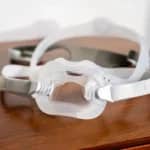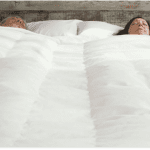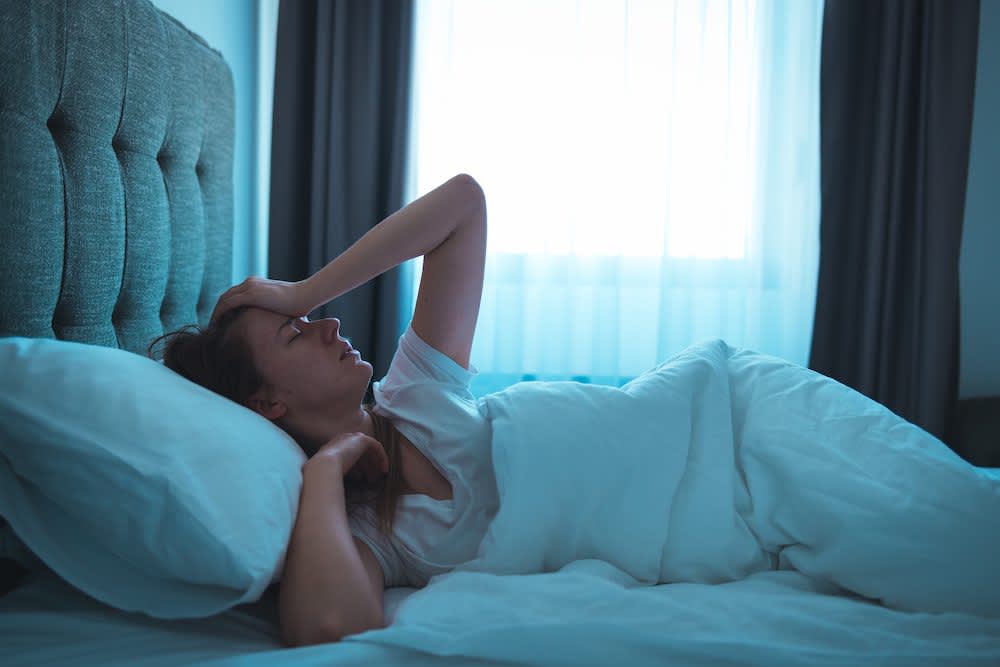Sleep deprivation is a widespread public health issue, and people of all ages say they don’t get enough sleep. According to survey data, around one-third of adults regularly sleep fewer than the recommended seven hours per night.
Sleep deprivation can occur for various reasons, including illnesses, sleep disorders, the use of certain medications, working late, or staying up socializing or watching TV. Disruptions in the sleep environment like loud noises, bright lights, and even a bothersome temperature can detract from sleep.
The effects of sleep deprivation can be significant. Not getting enough sleep can harm learning and memory as well as quality of life and work and school performance. Over the long-term, it can also increase the risk of health problems like high blood pressure, depression, heart disease, stroke, type 2 diabetes, and obesity.
Top 4 Tips to Avoid Sleep Deprivation

- 1 Recognize symptoms of sleep deprivation like drowsiness and fatigue.
- 2 Prevent sleep debt by practicing good sleep habits.
- 3 Try to build a consistent sleep schedule and an improved sleep environment.
- 4 Seek medical help if sleep deprivation persists after lifestyle adjustments.
Preventing sleep deprivation or quickly working to address it can support your mental and physical health.
What Is Sleep Deprivation?
Sleep deprivation describes not getting enough total hours of sleep, and it can be a short- or long-term problem. Acute sleep deprivation is defined as being awake for 16 hours or more in a row without naps or other sleep periods. Chronic sleep deprivation is an ongoing problem that involves a regular lack of sleep each night over a longer period of time.
Sleep deprivation and insomnia are sometimes confused with one another. Insomnia often involves a lack of sleep, but not everyone with sleep deprivation has insomnia. For example, some people are sleep deprived because they don’t have enough time in their schedule to sleep.
Sleep deficiency is a broader term for sleeping problems that can be caused by sleep deprivation and by fragmented sleep or poor quality sleep. While researchers use the term sleep deprivation to refer specifically to sleep quantity, some people may use the term more broadly to include other types of sleep problems.
What Causes Sleep Deprivation?
Various factors can combine to cause sleep deprivation, which may happen suddenly or build up over time.
- Work and school schedules: Obligations for work or school may reduce time available to sleep or interfere with a healthy sleep schedule. For example, night shift workers, first responders, teens with early school schedules, people who must wake up early or travel for work, and people who work long hours or multiple jobs may be more likely to have sleep deprivation.
- Too little time for sleep: For some people, sleep deprivation occurs because they do not set aside enough time for sleeping. Often, this happens as a result of voluntarily staying up later at night despite having to wake up early for school or work.
- Stimulant use: Caffeine and other stimulants can temporarily increase alertness, but their effects may make it harder to sleep at night.
- Medical conditions: Sleep deprivation is associated with a number of health conditions that may affect sleep including chronic pain, frequent urination or an overactive bladder, anxiety and depression, restless leg syndrome, obesity, and certain cancers.
- Circadian rhythm disorders: A biological process regulates sleep and wakefulness as part of the body’s 24-hour circadian rhythm. Disorders that disrupt circadian rhythm can throw off the daily sleep schedule and make it harder to get sufficient sleep. Numerous factors including age, genetics, and overall health can contribute to long-term circadian rhythm disorders.
- Sleep disorders: Sometimes sleep deprivation occurs because of an underlying sleep disorder. For instance, people with obstructive sleep apnea and insomnia may experience sleep deprivation. Lack of sleep can also occur in people with parasomnias, which are conditions of abnormal sleep-related movement, behavior, or dreams.
- Other factors: Numerous other factors can impact the duration of sleep. Some are temporary, such as jet lag, emotional distress, and seasonal colds or allergies. Others persist over a longer period and are related to life transitions, such as pregnancy, having young children, attending school, or retirement.
Symptoms of Sleep Deprivation
Sleep deprivation can cause a variety of symptoms. The most recognizable signs of sleep deprivation are daytime drowsiness and fatigue. Daytime sleepiness can also cause excessive yawning, frequent blinking, eye rubbing, and even inadvertently dozing off. Memory, mood, and concentration may also be negatively affected.
Effects of Sleep Deprivation
Sleep deprivation has a number of short- and long-term health consequences. Aside from problems with focus and mood, acute sleep deprivation can contribute to workplace and road accidents. Chronic sleep deprivation, or a persistent lack of restorative sleep, can trigger or exacerbate a wide range of serious physical and mental health issues.
Effects on the Body
Sleep is critical for maintaining overall health. It is essential for heart health and the repair and regeneration of blood vessels, and sleep deprivation can increase the risk of cardiovascular problems like heart disease, high blood pressure, and stroke.
In addition, a lack of sleep can have a range of other impacts on individual health.
- Immune function: Sleep is essential for the proper functioning of the immune system, which protects the body from potentially harmful substances. Sleep deprivation can alter how quickly and effectively the immune system responds to threats, making it harder to fight off infections that would typically be easily controlled.
- Hormone levels: Sleep promotes the normal production of hormones. For example, sleep is involved in the regulation of ghrelin and leptin, which regulate hunger, and insulin, which controls blood sugar levels.
- Pain levels: Sleep deprivation can heighten the perception of pain and may reduce the effectiveness of certain types of pain medication.
- Excess weight: Research has found that sleep deprivation can be a contributing factor to childhood obesity. In adults, lack of sleep may increase the risk of obesity because of sleep deprivation’s potential effects on hunger, metabolism, and hormone levels.
- Type 2 diabetes: Studies have identified an association between sleep loss and the risk of type 2 diabetes, which is a condition that can have far-reaching effects on overall health.
Mental and Emotional Effects
Sleep deprivation can impair decision-making and problem-solving. It can reduce mental flexibility, making it harder to deal with adverse situations or regulate mood and behavior.
Research has also shown that sleep deprivation can play a role in mental health issues, such as depression, risk-taking behavior, and suicidal thoughts and feelings.
- Depression: People who are sleep deprived may be more likely to experience symptoms of depression, a condition which also frequently causes further sleep disruptions.
- Anxiety: Anxiety, like depression, can be worsened by a lack of sleep, and anxiety disorders may make it harder to sleep well, contributing to a negative cycle of anxiety and insufficient sleep.
- Bipolar disorder: Sleep deprivation can worsen the symptoms of both manic and depressive episodes and has been associated with a decreased response to treatment in people with bipolar disorder.
- Hallucinations: Serious short-term sleep deprivation may trigger hallucinations if it involves 48 hours or more without sleeping.
- Poor concentration: One of the most common side effects of sleep deprivation is decreased alertness and a lack of focus during the day. Drowsiness is often involved in auto accidents and studies have found that lack of sleep can impair driving in the same way as alcohol consumption.
Sleep Deprivation Treatment and Prevention
Because there are many possible causes of sleep deprivation, there are not universal guidelines for treating it. However, there are common steps involved in preventing and treating a lack of sleep.
- Sleep hygiene: Sleep often improves in people whose daily routines and sleep environment promote healthy sleep. A focus on making sleep-related habits and the bedroom setting conducive to quality rest is known as sleep hygiene.
- Addressing underlying problems: Getting treatment for any underlying medical issues, such as sleep apnea, anxiety, or chronic pain, may help reduce the underlying cause of sleep deprivation.
- Medications: Some people benefit from over-the-counter or prescription medications to improve sleep, but it is important to talk with a doctor or sleep specialist about whether using a sleep aid would be safe and appropriate.
Diagnosing Sleep Deprivation
Sleep deprivation is generally a symptom of an underlying issue rather than a disorder in itself. With so many factors that can contribute to sleep loss, doctors and sleep specialists may use several tools to identify the most likely reason for insufficient sleep. Determining the cause of sleep deprivation can be an important step in developing a tailored treatment plan that may promote better nightly sleep.
Tracking sleep with a sleep journal for at least one week is a common way of assessing sleep and determining the severity of sleep deprivation. In some cases, a doctor may recommend a sleep study, which involves using specialized equipment to gather data about sleep quantity and quality. A simple home sleep test can help diagnose or rule out many sleep disorders such as obstructive sleep apnea.
Improving Sleep Hygiene
The practice of creating a bedroom environment and daily routines that promote regular, uninterrupted sleep is known as sleep hygiene. Examples of steps that can improve sleep hygiene include:
- Having a consistent sleep schedule, including regular times for going to bed and waking up each day
- Limiting exposure to electronic screens like phones, TVs, or tablets before bed
- Avoiding caffeine, nicotine, and heavy meals in the evening
- Setting the bedroom thermostat to a temperature that is cool and comfortable
- Limiting the length and frequency of daily naps
- Trying to be physically active every day
- Creating a wind-down routine of relaxing activities like reading or listening to soft music before bedtime
- Making the bedroom as quiet and dark as possible
Ideal sleep habits can vary from person to person, so trying out different steps can help create a tailored approach to improve sleep hygiene.
Shop the Best Mattresses of 2025Cognitive Behavioral Therapy
Cognitive behavioral therapy, or CBT, is a type of therapy used to help change patterns of thinking and behavior to improve wellness. CBT for insomnia, known as CBT-I, is a specialized form of this therapy used to help people with chronic insomnia.
The goal of CBT-I is to change problematic beliefs and behaviors about sleep, enabling more consistent sleep every night. CBT-I is often used as an initial treatment for chronic sleep problems and frequently incorporates sleep hygiene enhancements. Sometimes CBT-I may be used alongside medication to improve sleep.
Sleep Medication
For some people, medication may be recommended to address sleep deprivation. In many cases, medication is advised only if other treatments have not been effective.
The use of sleep medications should always be done with caution and under the supervision of a trained health professional. Sleep aids can have negative side effects and may be addictive, so it is important to work with a health care provider to ensure that they are used safely and correctly.
Most sleep medications are designed to promote drowsiness that makes it easier to fall asleep or sleep through the night. Over-the-counter drugs like antihistamines and some dietary supplements may cause sleepiness. There are also several types of prescription drugs that may promote sleep including hypnotics and sedatives, barbiturates, melatonin receptor agonists, orexin receptor antagonists, and antidepressants.
References
The Sleep Doctor Forum: Real Experiences, Real Connections
Continue the discussion on the Sleep Doctor Forum. Connect with experts and fellow forum members on CPAP, sleep apnea, and all things sleep. A priceless resource that’s free to join.






































